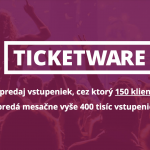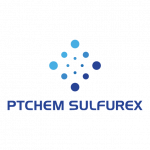The Mazal Tov Festival of Jewish culture in Košice has five years behind it. The civic association More has organized the festival since 2012. This article doesn’t have the ambition to be and cannot be an instruction for organizing a festival, because many of our experiences are not transferable. The choice of a strategy when organizing cultural events depends to a great measure on the national or local conditions. These consist, for example, in the level of the cultural environment in which the event originates and exists, in the availability of financial resources, but also the subjects, focus and target group to be addressed. The text points out the challenges and problems we have faced over the past five years, primarily in the area of financing. The way in which we handled them could be inspirational for the reader.
What the Mazal Tov Festival is about and why we do it
We organize the Mazal Tov Festival so that we citizens of Košice can recall that Jewishness was once a significant component of the life and culture of the city. In the period before the Second World War the Jewish minority made up one-fifth of the city’s population. Jews contributed significantly to the economic and cultural development of the city, but over the past five decades this has nearly been forgotten.
The aim of the Mazal Tov Festival is popularize Jewish culture and to break down prejudices, anti-Semitism and xenophobia in the surroundings in which we live. We believe that openness to other cultures leads to tolerance and better co-habitation among residents, without regard to mutual differences in skin colour, religion or world-view. Therefore we organize the festival for all citizens of Košice.
The Mazal Tov Festival was from the beginning profiled as a multi-genre festival with an international artistic line-up. During its five years of organization fifty events have been held which have been attended by approximately twelve-thousand visitors. The festival documents what Jewishness in Košice was – traditional Jewish music, literature, architecture, customs – but it also brings modern productions and new artistic forms. These usually arise beyond the borders of Slovakia, mainly in Israel, the USA and in Europe, in neighbouring Poland, for example, where Jewishness in recent decades has undergone a Renaissance.
From a generous subsidy to multi-source financing
In 2008 Košice won the title of European Capital of Culture 2013 (hereinafter the ECC). Thanks to this, a space was opened for existing and newly formed cultural events to obtain a grant in a special grant programme exclusively for the support of ECC activities.
The initial idea of arranging a festival of Jewish culture in Košice was suggested to us by the director of the ECC, Ján Sudzina in 2011. At this time no events presenting Jewish culture existed here. He asked us to think up a suitable artistic format, because he knew that this subject is temperamentally close to us and that we had experience with the production of other artistic events.
For carrying out the first two years, we obtained a grant from the Ministry of Culture within the ECC programme (in 2012 this was 22,000 EUR, in 2013 the grant was 32,000 EUR). Thanks to this we were able to prepare an exceptionally attractive programme and get the attention of the wider public. As early as at the turn of 2012 – 2013 we became aware that we cannot count on this source of income in the future. Although the ECC grant programme should have been preserved in 2014, it was to be expected that the allocation would be significantly limited or not available at all. Financing from the Ministry of Culture as the only source seemed to us, and in the end proved to be, unsustainable.
For this reason we began on time to seek out new possibilities for financing. Already in 2014 we managed to organize the festival without a subsidy from the Ministry of Culture. The festival’s budget in 2014 was on the level of 25,000 EUR and was made up of several sources (International Visegrad Fund, Košice Turizmus, City of Košice, foreign cultural institutions, the Israeli embassy, a company partner, incomes from tickets). We worked with similar budgets in 2015 and 2016, and the composition of revenue sources was still more differentiated among several donors (the city grant scheme was added, the Office of the Government, the Fund for the Support of the Arts). We requested lower subsidies from grant programmes with a higher measure of co-financing, and by now all of the grant applications we submitted for the festival were successful.
The subject of the festival made it difficult for us to obtain sponsoring from larger companies. Many, namely, perceive the festival of Jewish culture as thematically oriented on one religious group and do so despite the fact that we avoid religious subjects. Several times we had confirmed that international corporations in particular thoroughly avoid any whiff of discrimination, even the positive type; therefore, they prefer not to support the festival.
Another possibility of how to achieve liberation from dependence on public sources could be to show a profit from the sale of admission tickets, or self-financing. However, artistic production of the festival is far from the commercial mainstream, and from admission fees we were able to cover only a small portion of the costs necessary for holding the festival (about 10 – 15%). At the same time we try to maintain low admission fees, which reflect the locality in which the festival is organized and so that the festival is accessible even for disadvantaged groups of citizens – pensioners, the unemployed, parents on parental leave, students and the like.
The donation for an admission ticket, or of a visitor, depends on the type of event. Thematic tastings of Jewish specialities are attractive, and we are able to cover them from an admission fee. The opposite case is, for example, a two-day workshop led by two lecturers for tens of participants, which is one-hundred percent subsidized. When deciding on the prices of admission tickets and the measure of a subsidy, we always consider the added value that the specific event brings not only to the festival but also to its visitors and the cultural scene of the city.
We didn’t run a crowdfunding campaign, which several cultural organizations and festivals in Košice started after the resources from EEC “ran dry”; therefore, the public which is interested in our product support it by buying tickets. We try more to motivate visitors to the timely purchasing of tickets for an advantageous price in advanced sales.
The road up on the escalator
We achieved the shift in long-term planning of the Mazal Tov Festival thanks also to participation in the Escalator educational programme. Since 2013 this programme has been organized by the non-profit organization Creative Industry Košice. Escalator is an intensive programme for education and professionalization of people working in creative industries. It is intended for artists, cultural centres and organizations. We registered for Escalator after the first year of the Mazal Tov Festival and took part in it for two years (2013, 2014).
At the beginning of Escalator we completed an entry “audit” relating to our organization and the festival itself. On the basis of deep personal interviews with experienced mentors Paul Bogen and Sandy Fitzgerald we identified the strong and the weak sides and subsequently resolved our key needs. Under their guidance we clarified the values, mission and vision of the festival; we thought a great deal about the development of the public, worked on the organizational structure, a long-term strategy and prepared a three-year business plan. Last but not least Paul and Sandy helped us obtain an overview of the environment in which we live and work. Professional and personal growth in Escalator enabled us to better face problems and avoid burnout. We recommend to everyone the possibility of discussing projects with experienced people.
The associated article “Development of the Public on the example of the Mazal Tov Festival” gives a more complex view on the dramaturgical profile of the festival, its programming and work with the public.









Add Comment